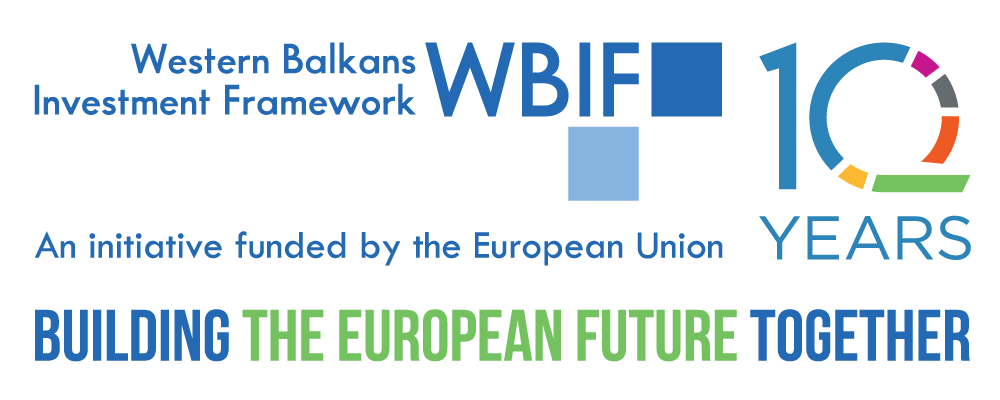People living in Albanian countryside are now better connected due to the contribution of the Western Balkans Investment Framework (WBIF). 500 km of rural roads have been upgraded throughout the country, which has had a direct impact on the development of the private sector in small towns and villages, fostering the competitiveness of the agribusiness sector.
The new roads have revitalised the rural areas of northern Albania. One of the many examples is the Dobra family, where every family member has benefited from the rehabilitated roads. The father, Erold Dobra, has planted a vineyard and is now taking advantage of the better transport links; his youngest son, Veli Dobra, can walk safely to school in a much shorter time and arrive at lessons on time. Because of the poor road conditions, even the teachers were often late in the past.
The upgrade of regional and local roads project is part of a comprehensive road improvement programme throughout the country. Roads are the predominant mode of land transport in Albania and provide essential connectivity for freight and personal mobility, especially to rural areas, where more than half of the population lives. In 2018, about 50% of the secondary and local network was still categorised as being in a poor or very poor condition, according to the World Bank.
The extensive investments carried out through this project are gradually improving the quality of the roads by reducing potholes and improving the maintenance of the routes that are repaved to higher standards. The project is not only refurbishing existing infrastructure but also providing a more comprehensive network and creating new interconnecting links. The rehabilitated roads will ensure safer travels for an increasing number of citizens, traders, and tourists that drive through the country every day.
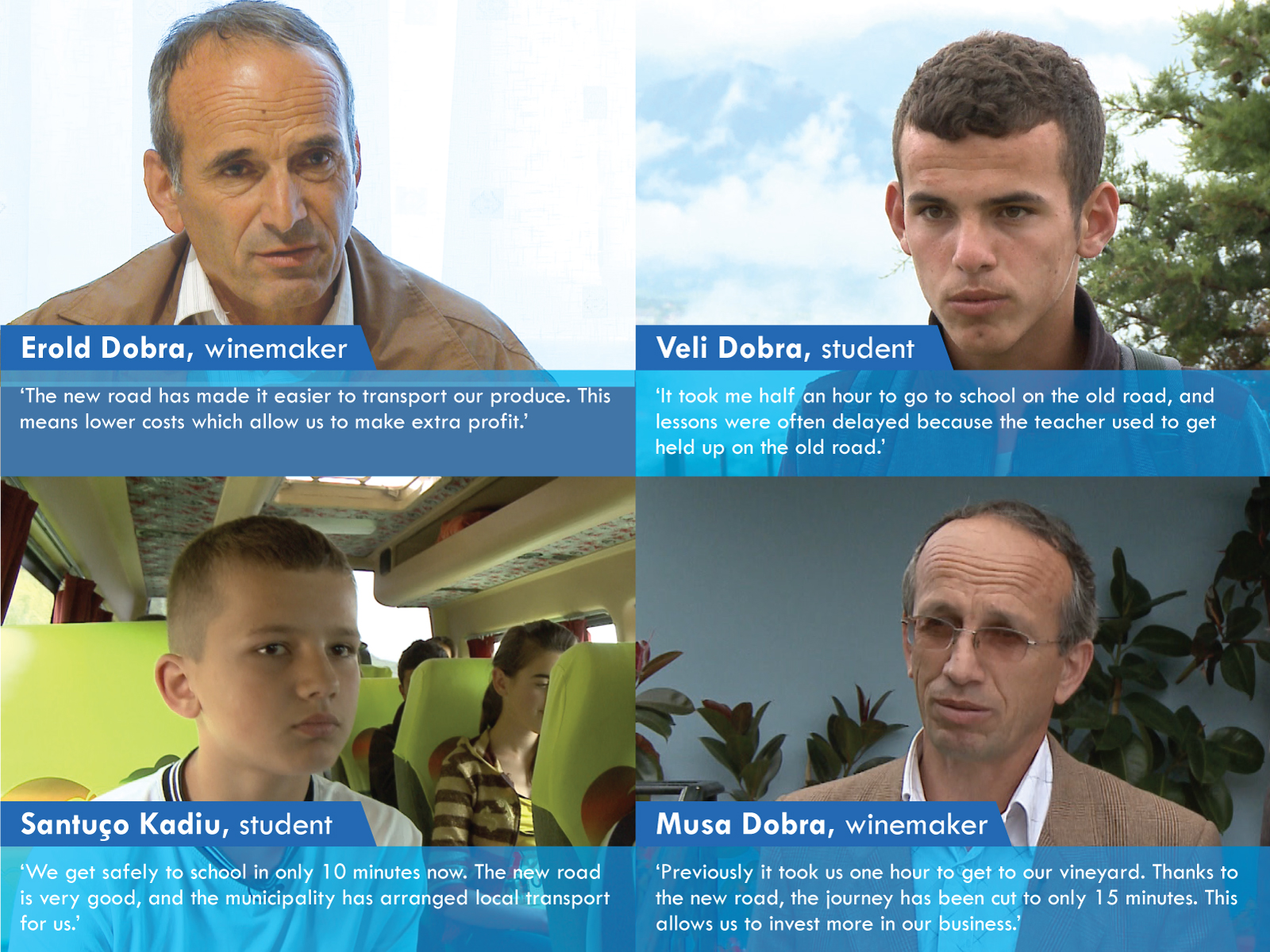
Project beneficiaries (c) EBRD.
The project “Rehabilitation of Regional and Local Roads” is part of a multi-donor programme for the rehabilitation of 1,200 km of secondary and local roads in Albania. The programme was implemented from 2008 to 2018 by the Albanian Development Fund (ADF). The main goals focused on:
The project contributed to increasing economic growth and social well-being in rural areas in Albania by helping private sector development and improving access to essential services.
The WBIF allocated a €4 million grant from Bilateral Donors, the European Bank for Reconstruction and Development (EBRD) Shareholder Special Fund and the European Investment Bank for technical assistance to help with the preparation of tendering documentation, supervision, project monitoring, and implementation support. The investment works were funded by more than €34 million in grants from the European Union through the Instrument for Pre-Accession Assistance (IPA) and €100 million in loans from the EBRD and the EIB.
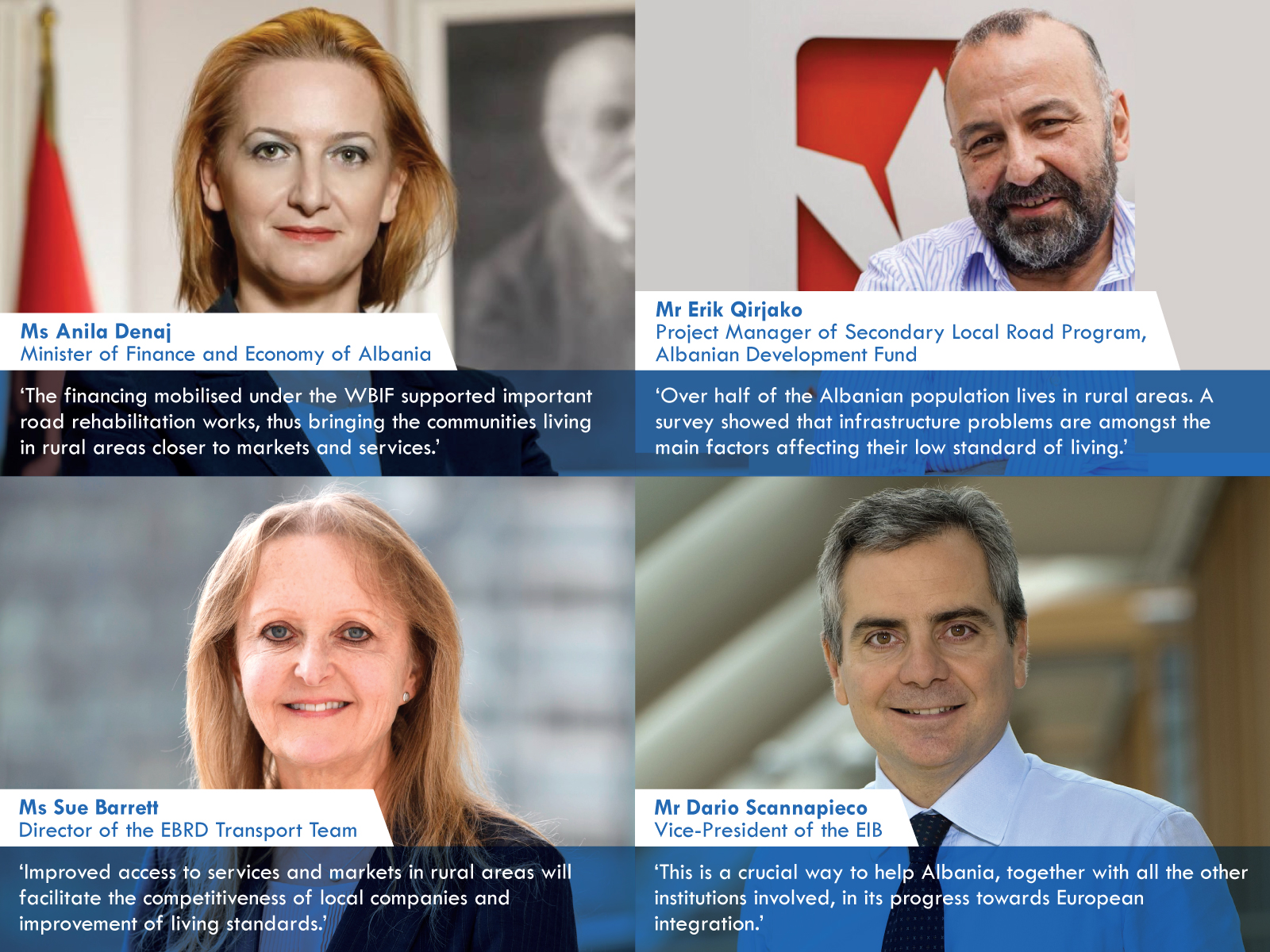 Stakeholders of the WBIF funded project (c) EBRD, EIB, ADF, Ministry of Finance and Economy of Albania.
Stakeholders of the WBIF funded project (c) EBRD, EIB, ADF, Ministry of Finance and Economy of Albania.
WBIF was jointly launched in 2009 by the European Commission (DG ELARG now DG NEAR), International Financial Institutions and Bilateral Donors to enhance harmonisation and cooperation in investments for the socio-economic development of the Western Balkans. Together with the Western Balkan beneficiaries, WBIF forms a unique partnership, defining priorities and support packages needed for strategic investments and institutional reform. WBIF contributes to the European perspective of the Western Balkans by supporting not only investment projects improving competitiveness and growth, but also by reinforcing regional cooperation and connectivity. Eligible sectors include digital infrastructure, energy, environment, social, transport, and private sector development through WBIF’s dedicated initiative EDIF (Enterprise Development and Innovation Facility). This cooperation is only possible due to the close and coordinated interaction among the European Commission, International Financial Institutions and Bilateral Donors, together with the Western Balkan beneficiaries.
This year marks WBIF’s 10th anniversary, and during the past decade over €1 billion in grants were allocated for preparation and implementation of infrastructure projects. Starting with 2015, around €200 million in investment grants per annum is allocated to the Western Balkan beneficiaries for the implementation of Connectivity Agenda. The EU grant channelled through the WBIF since inception, will support investment projects with an estimated total investment cost of €18 billion. The successful implementation of the EU grant have resulted in many tangible and intangible gains, including but not limited to: significantly reduced travel times; increased transport safety; reduced emissions; improved quality of life and urban environment; better learning conditions; and increased competitiveness, etc.
Some of the concrete benefits of the infrastructure projects supported by WBIF will entail:
Besides physical infrastructure, these investments will reduce existing barriers making the horizon of European accession visible and obtainable.
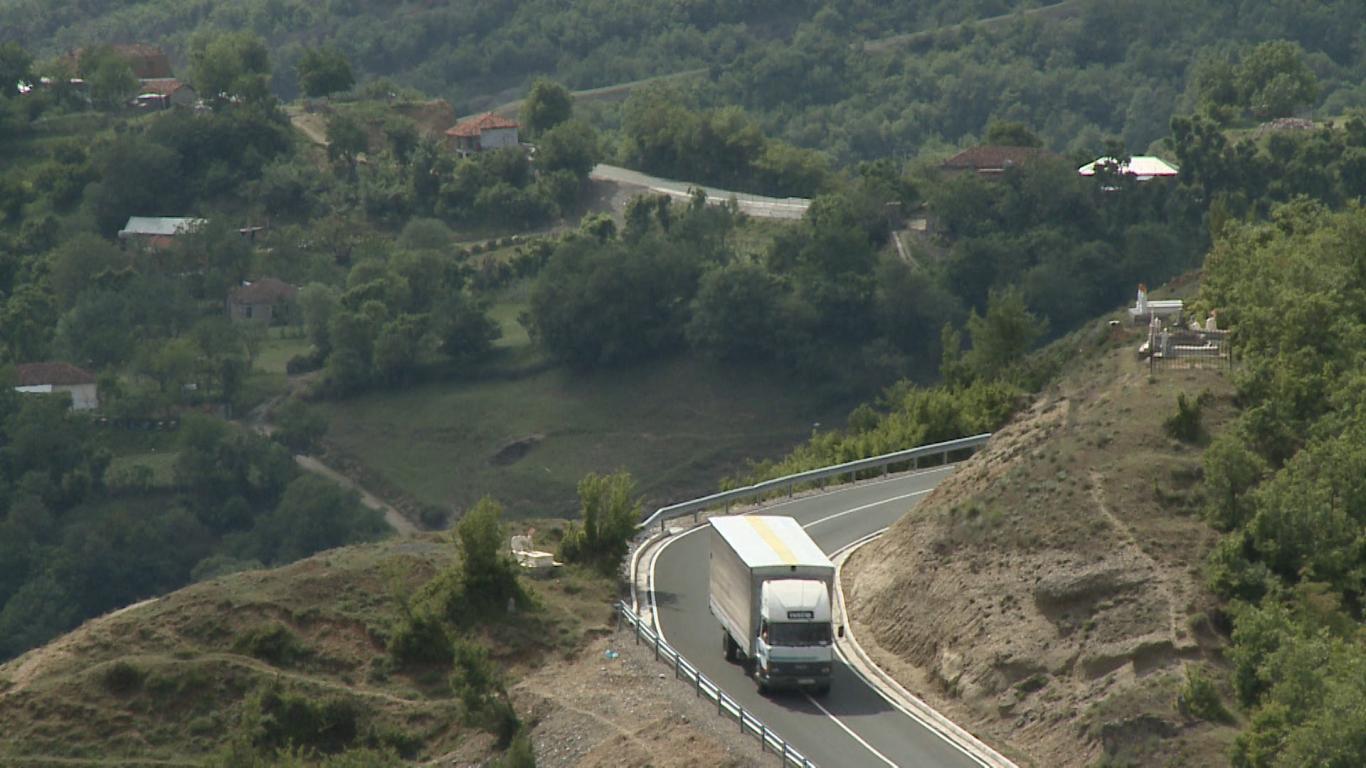
Rehabilitated road infrastructure drives economic development (c) EBRD.
'These roads bring new life to our villages where many houses are now being built. Before we felt cut off from the rest of the country; the roads were in poor condition, and the costs of travelling to the nearest town were high.'
Qerim Fusha, a representative of the Farkë municipality
EBRD and EIB financed the modernisation of local and regional roads (c) EBRD.
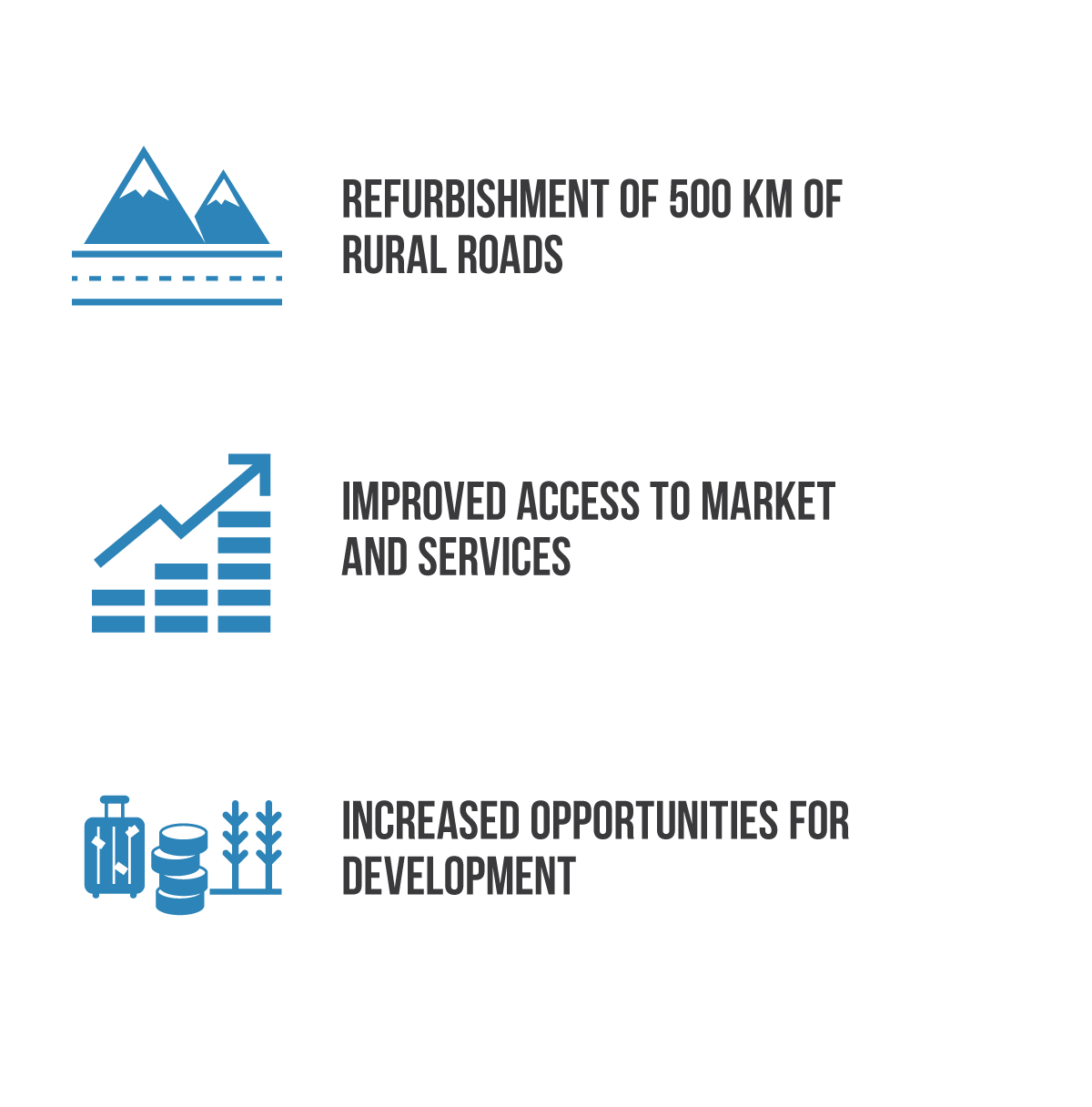
Project title:
Rehabilitation of Regional and Local Roads
WBIF Grant:
€4 m
EBRD Loan:
€50 m
EIB Loan:
€50 m
EU IPA Grants:
€34.5 m
TOTAL PROJECT VALUE:
€138.5 m
